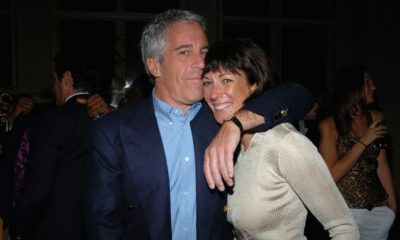News
Supreme Court Grants Arvind Kejriwal Bail: Judicial Observations Reflect Concerns Over Arrest Timing and Due Process
The Supreme Court on Friday granted Delhi Chief Minister Arvind Kejriwal bail in the controversial excise policy corruption case, marking a significant turn in a legal battle that has attracted widespread public and political attention. The bench, presided by Justices Surya Kant and Ujjal Bhuyan, delivered a judgment that not only secured Arvind Kejriwal bail but also raised critical concerns about the conduct of investigative agencies, particularly regarding the timing and grounds of his arrest.
Judicial Observations: A Sharp Critique of Procedural Missteps
Arvind Kejriwal’s legal troubles began when he was first arrested by the Enforcement Directorate (ED) in March for alleged money laundering linked to the now-scrapped Delhi excise policy of 2021-22. Despite securing bail in the ED case, Arvind Kejriwal bail was delayed due to a subsequent arrest by the Central Bureau of Investigation (CBI) in June on related corruption charges. The Supreme Court’s judgment on Friday brought an end to nearly six months of incarceration and questioned the procedural integrity of the arrests.
Justice Ujjal Bhuyan: Questioning the Timing and Motivations
Justice Ujjal Bhuyan’s observations were particularly critical of the CBI’s actions. He raised pointed questions about the timing and manner of Arvind Kejriwal’s arrest, suggesting that the move appeared to be an attempt to thwart the bail granted in the ED case. Justice Bhuyan emphasized that while cooperation with investigative agencies is necessary, non-cooperation cannot be equated with guilt or self-incrimination.
“The CBI’s arrest seemed aimed at frustrating the grant of bail already secured in the ED case,” Justice Bhuyan remarked, highlighting that such strategic arrests undermine the principles of justice. He further stressed that the arrest was unjustified and that coercive measures should not be used as punishment or to force compliance.
“Bail is the rule, jail an exception. Courts must ensure that the prosecution and the process of trial do not become punitive measures in themselves,” Justice Bhuyan observed, underscoring the fundamental judicial tenet that liberty should not be curtailed without compelling reasons.
Justice Surya Kant: Emphasizing Liberty and Speedy Justice
Justice Surya Kant, concurring with Justice Bhuyan, highlighted the importance of upholding the principles of liberty and ensuring that justice is not delayed. He reiterated that prolonged incarceration without substantive grounds is tantamount to a denial of justice and that the judiciary must act to prevent any misuse of power by investigative agencies.
“Liberty is a cornerstone of our legal system, and it is the court’s duty to protect it,” Justice Kant stated. He expressed concern that the prosecution’s actions could create a perception of bias, eroding public trust in the impartiality of the legal process.
Justice Kant also pointed to the broader implications of prolonged detention, noting that the judiciary must be vigilant in preventing the criminal justice system from being weaponized against individuals, especially in politically charged cases. His remarks underscored the importance of a fair and balanced approach in cases involving public figures.
Political Ramifications: A Boost for AAP’s Narrative
The Supreme Court’s decision has significant political ramifications, especially as Arvind Kejriwal and his Aam Aadmi Party (AAP) have consistently argued that the charges against him are politically motivated. The critical observations made by Justices Bhuyan and Kant lend credence to concerns about the use of law enforcement as a tool of political vendetta, a narrative that Arvind Kejriwal has consistently pushed since his initial arrest.
The court’s pointed critique of the CBI’s timing and approach strengthens Arvind Kejriwal’s position, allowing him to frame the legal battle as not just a personal victory but a triumph against perceived political persecution. The ruling, coupled with the justices’ comments, bolsters the AAP’s claim that investigative agencies should act independently and not under political influence.
Implications for Judicial Oversight of Investigative Agencies
This judgment underscores the judiciary’s role as a guardian of individual rights and a check against potential overreach by law enforcement agencies. The remarks by Justices Bhuyan and Kant highlight the need for investigative bodies to adhere strictly to procedural fairness and avoid actions that might appear arbitrary or vindictive.
The emphasis on the principle that “bail is the rule, and jail the exception” serves as a powerful reminder of the importance of protecting personal freedoms, even in cases involving serious allegations. The Supreme Court’s intervention signals a broader judicial commitment to ensuring that justice is not only done but seen to be done.
Conclusion: A Judicial Reminder of Fairness and Due Process
The Supreme Court’s decision to grant Arvind Kejriwal bail is more than just a legal judgment—it is a reaffirmation of judicial values that prioritize liberty, due process, and the fair administration of justice. Justices Surya Kant and Ujjal Bhuyan’s observations send a clear message that arrests should not be used to punish or intimidate but should be based on legitimate grounds with respect for procedural norms.
As the case continues to unfold, the judiciary’s stance serves as a critical reminder of its role in upholding democratic principles and ensuring that the scales of justice remain balanced, even amid the pressures of high-profile political battles.










































